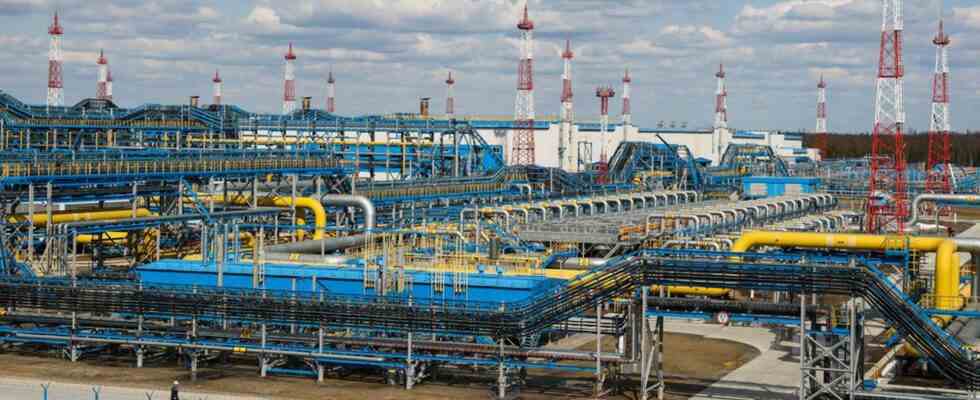Posted Jul 20, 2022, 8:43 AMUpdated on Jul 20, 2022 at 4:49 PM
Faced with the risk of a gas shortage, each member country of the European Union (EU) will have to make more efforts than expected. This Wednesday, the European Commission proposed that each of them do “everything possible” to reduce, between August 2022 and March 2023, their national gas consumption by at least 15% compared to the average of the last five years. over the same period, as part of an emergency plan, while Europe is undoubtedly going through its most serious energy crisis.
“It is now that we must reduce our energy consumption so as not to have a recession in our single market”, warned the President of the European Commission, Ursula von der Leyen, who wants Europe to be ready, including understood to suffer the worst-case scenario which would see Russia cut off gas to Europe. This could potentially reduce European gross domestic product by 1.5% if the winter is cold, the Commission estimates.
Everyone will therefore have to, on a voluntary basis for the moment, solicit households and businesses to take part in the effort which should allow Europeans to spend the winter in the warmth, and businesses not to go out of business in the next months.
The plan is due to be discussed on Tuesday July 26 at a Council of European Energy Ministers. “I expect all the Member States to tell me that they have already made a lot of efforts but, in reality, today, there is only a 5% reduction in energy consumption in Europe, it is insufficient,” said Energy Commissioner Kadri Simson.
Solidarity under conditions
In any case, Europe intends to follow meticulously the efforts of each Member State which it will ask to send it, every two months, the list of measures taken. The community executive recommends both the reduction of heating and air conditioning, the green transition where possible, the switch to other energy sources when necessary.
The temporary state aid framework, which was put in place at the start of the Ukrainian crisis, will also be updated to encourage all possible substitutions. If member states act to meet demand reduction targets, “Putin’s attempt to manipulate us will fail”, said EU climate chief Frans Timmermans.
More than anything, Europe advocates solidarity between Member States to appeal to each other in the event of difficulty. But she sets conditions. “Those who ask for solidarity will have to demonstrate that they have implemented all the measures necessary to reduce the demand for Russian gas”, explained Thierry Breton, the Internal Market Commissioner. For Germany, for example, this is additional pressure with a view to the extension of its nuclear power plants .
Certain sectors deemed non-essential could be directly targeted for the reduction of energy consumption, but this decision is up to the Member States. It goes without saying, however, for the Commission, that the health, food, defense or refining sectors cannot be concerned.
Compulsory rationing
The Commission wants to move quickly. While the 15% target is currently voluntary, it plans to make it compulsory in the event of a serious shortage or if at least three Member States request it. A large number of European countries are however reluctant to do so, as they have already launched their own emergency plans. Poland, which is facing a shortage of coal, has officially already indicated that it is opposed to it.
For its part, Hungary banned gas from leaving its borders from August, sparking the ire of the EU. Twelve Member States are affected by the cuts in Russian gas shipments, including Germany, which has raised his alert to gas risk at the second highest level last month.
Europe has little hope of Russia resuming full deliveries through Nord Stream, the EU’s main gas artery which is officially closed since the beginning of the month for repairs . “If we start now, I think everything is in place so that we can do without Russian gas completely next winter,” said Thierry Breton. We are at 66 billion cubic meters of liquefied gas and 11 billion on existing pipelines. The European Commission has said it wants to reduce Russian gas imports by 100 billion cubic meters in 2022.

